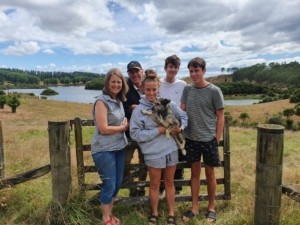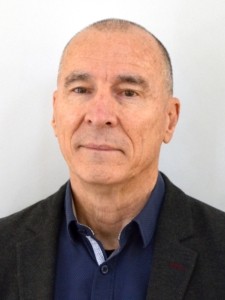- Home
- Research
- Sustainable Futures
- Regenerative Agriculture and the future of farming in the spotlight
Regenerative Agriculture and the future of farming in the spotlight

Regenerative Agriculture and the future of farming will be the focus of a Policy Think Tank organised by EIT’s Research and Innovation Centre next month.
The forum, scheduled to be held on EIT’s Hawke’s Bay Campus in Taradale at 5pm on Thursday, 28 October, is part of the Institute’s commitment to progressing applied research, curriculum content and community initiatives that support improved sustainability.
Professor Natalie Waran, Executive Dean and Professor of One Welfare says EIT graduates will contribute to the development of a healthy, productive and sustainable region, as well as to the National and Global drive towards achieving a more sustainable future for all by 2030.
The discussion will be led by a university sociologist and local farmers practising regenerative agriculture. They are Edgar Burns, Associate Professor at the University of Waikato and the inaugural Hawke’s Bay Chair of Integrated Catchment Management, based at EIT; and local farmers, Greg and Rachel Hart, from Mangarara Station near Elsthorpe, Central Hawke’s Bay.
Greg and Rachel are in the process of transitioning a traditional sheep and beef farm to a farm fit for the future by adding diversity of animals, plants and people. They have an eco-lodge and actively support educational visits and initiatives concerned with reconnecting people, nature and personal wellbeing.
Edgar grew up on a farm near Hastings, previously taught at EIT and recently returned from 12 years at La Trobe University in Melbourne. His University of Waikato position works with the Hawke’s Bay Regional Council, and he has published several articles on regenerative agriculture.
EIT’s Research Development Manager, Dr Pii-Tuulia Nikula, says EIT’s Policy Think Tank series for this year is called ‘Sustainable Futures.’
“We have drawn on expertise from around Hawke’s Bay. This particular topic is of great interest and being able to hear from an academic researching this topic locally, as well as farmers who are actually practicing regenerative farming, is a great combination.
“This Policy Think Tank series is an important way to discuss issues of importance and in this case, explore different farming approaches such as regenerative agriculture that are vital for addressing the ongoing climate crisis.”
Greg says regenerative farming is about taking a holistic approach and dealing with the root cause of the problems, not just the symptoms.
He and Rachel agreed to participate in the discussion because “we are at this pivotal time on the planet, and I am just happy contribute and pass on what I have learnt”.
He says he is thrilled to be part of the Learning in Nature Air NZ Environment Trust project with EIT as well.
“We think that education is a huge part of bringing around this transition in the way we do things. Young people can see that we have to change our energy use, our economic models and obviously our food system. We just love having young people visit the farm to see what we are doing and having those discussions with them to help them think more broadly about sustainability.”

Edgar Burns, Associate Professor at the University of Waikato and the inaugural Hawke’s Bay Chair of Integrated Catchment Management, based at EIT.
“We also have to go beyond sustainability, because we’ve degraded the planet to such an extent now, that we have a responsibility to not just sustain that, but to work with nature to regenerate,” says Greg.
For Edgar, regenerative agriculture is open-ended and is about doing all one can to maintain and improve the soil, as well as the environment, rather than focussing on ever increasing production targets.
He believes that is also important to stop the “blame-game” because farmers are not the “bad guys.”
“Most farmers are just fairly hunkered down and soldiering on. But quite a lot of them are finding space to talk about: ‘How do we farm better.’ So, there’s quite a creative element to it.”
This Policy Think Tank Event is open to all and is scheduled to run from 5pm to 6.30pm.

